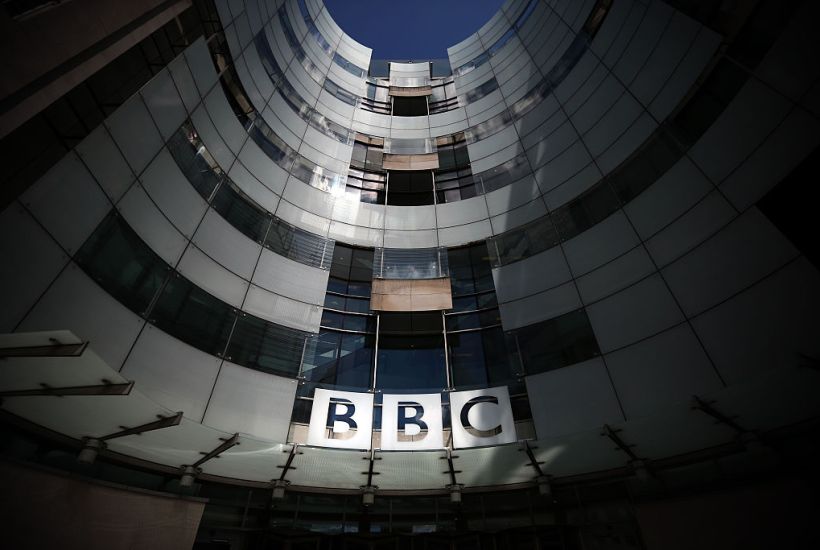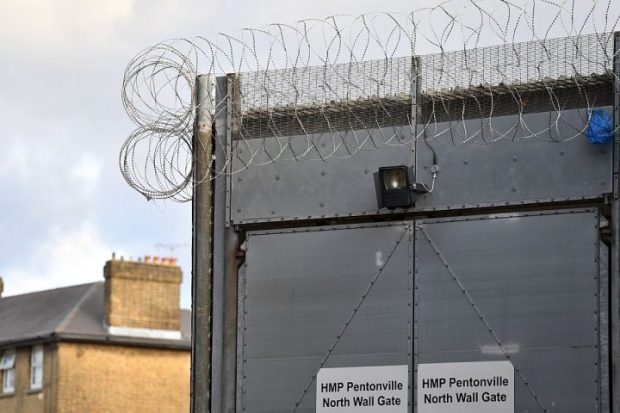It is encouraging to hear that the new Director-General of the BBC, Tim Davie, is demanding changes in the BBC’s comedy output to correct its bias to the left. As a starting point for reforming the whole Corporation, comedy might seem an oddly trivial place to begin. This, however, signals intent. Not that reforming comedy shows will be easy; the BBC’s in-house joke-mongers accurately reflect the woke agenda to which the whole organisation subscribes. By choosing comedy as his target, Mr Davie has picked out a loose strand in a great ball of wool; if he tugs hard enough for long enough the whole ball might unravel.
But as ‘reform’ seems now to be on Mr Davie’s agenda perhaps he might put some other things on his to-do list. Here are some suggestions, some trivial, some fundamental and in no particular order, to remedy some of those things that most annoy right-inclining licence-fee payers.
1.
The Big One: the BBC needs to come to a new understanding of what its much-vaunted doctrine of ‘impartiality’ actually means. Despite clear evidence the Corporation’s news output contains obvious biases towards the liberal-left, there has never been any concerted action by BBC management to remedy the situation. As a reminder to the new DG, here are some of the qualities BBC reporting should embody: fairness, disinterest, neutrality, even-handedness and objectivity. Readers can decide for themselves how well the BBC matches up to these journalistic virtues; personally, on all the issues I most care about, it fails on a daily basis.
2.
Having re-defined what impartiality is, as a first step towards reconnecting with the audience it has lost, the BBC needs to start policing transgressions of the code more effectively. When Emily Maitlis shared her views on Boris and Dominic Cummings in her Newsnight harangue she received a mild rebuke. She is now back on the show as if nothing happened. At the very least she might have been suspended for a period; perhaps the time could have been used to remind her of the BBC’s solemn pledge not to take sides.
3.
Trim the BBC’s labyrinthine internal management structure. Within the Corporation, the bane of every producer’s life is the supposedly mythical ‘Programme Prevention Department’. All too often good creative ideas get stymied by a risk-averse, politically correct bureaucracy. A wholesale clear-out of middle-management would also deliver better value for money.
4.
Restore sports output to the male ghetto to which it naturally belongs (and where I’m happy to hang-out some of the time). I always took it as a mark of female superiority that members of that sex rarely succumbed to the irrational obsession with sport that is a feature of so many men’s lives. But now the BBC seems to be on a mission to convince us that all women are just as fanatical about silly games as men. So there are now lots of female sports presenters, often telling us about minority female sports which register near-zero public interest. Most women are far too sensible to care, so why pretend?
5.
More foreign news please. The BBC’s domestic news bulletins have become tediously parochial – a long-term trend exacerbated by lockdown. It is an irony, because the BBC has one of the world’s most extensive network of expert foreign correspondents – but you would hardly know it when listening to the main bulletins. It is doubly ironic because the BBC’s world-view is determinedly globalist, yet this finds little reflection in its coverage. There should be more follow-through on foreign stories and output editors should rest assured there’s a big audience who do not want an unrelieved diet of Covid argy-bargy.
6.
Fat-cat presenters need a pay-cut. The idea that some footballing personality is worth a million quid a year to introduce Match of the Day is comically misguided and infuriates licence-fee payers. The same is true of some other ‘star’ presenters. News-reading, for instance, is a much overrated, much over-remunerated activity. Understand, Mr Davie, that most of us don’t give two hoots who’s reading the teleprompter. We just want straight news professionally presented.
7.
Sort out the Today programme. Today used to be a must-listen to anyone with pretensions to be well informed. It no longer is. For the past few years, the programme has been timid and tediously metrocentric. Today’s golden years have been under editors prepared to rock the boat; none was better at that than Rod Liddle. But brave editors are not popular with the Corporation’s news managers. They much prefer the proverbial ‘safe pair of hands’. Dead hands more like.
8.
Restore cordial relations with the government. If the BBC wants to preserve the privileges it currently enjoys – foremost among which is the ability to levy a tax on everyone with a TV set – it needs to convince the Tory Party that it can be something other than a permanent, carping adversary which favours their opponents. The key to doing this means demonstrating a new understanding of what it means to be impartial and taking firm measures to achieve it.
9.
Learn that ‘diversity’ among BBC staffers is not about skin-colour. For too long the BBC has repeated its mantra about achieving a staff that ‘looks like the country’. Unfortunately, the emphasis has been entirely on ‘looking’ and nothing about ‘thinking.’ The real diversity the BBC needs is political diversity; its current problems stem from an internal political monoculture which stifles dissident voices.
10.
Scale back. The BBC is too big; it does too much. It does not need to muscle its way into every broadcasting niche and cranny. It should concentrate its resources – a yearly income just shy of £5,000,000,000 is a handsome foundation – and make sure that quality improves as a result. For instance, staffing levels on Today are now pitifully thin; unfair pressure is put on poorly-paid junior staff because there aren’t enough producers and often it shows. Management is about choices and the hard truth is that Today is much more important than MotD.
What this all boils down to is that the BBC must re-learn how to address the whole nation not just the young, the woke and the lefty. At the moment a sizeable proportion of the country feels the BBC doesn’t speak to them or for them, and understands nothing about their aspirations and motivations. Worse, when it is not actively disparaging these people – the constant inference of the supposed racism of Leavers spring to mind – the BBC is condescending to them. If you are going to be the ‘national broadcaster’ and we, the people, are going to pay your wages, you have to earn national loyalty. Time is short, the BBC has never faced such an unpromising outlook. Unless Tim Davie grasps the need for real reform, he could be the last Director-General of the BBC in its present form.
Got something to add? Join the discussion and comment below.
Get 10 issues for just $10
Subscribe to The Spectator Australia today for the next 10 magazine issues, plus full online access, for just $10.




















Comments
Don't miss out
Join the conversation with other Spectator Australia readers. Subscribe to leave a comment.
SUBSCRIBEAlready a subscriber? Log in